

Emergencies can happen at any time. They can be as large as a bushfire, flood or cyclone or as personal as a death in the family. But the better you prepare for them, the easier it is for you and your family to recover.
It is important to include your children in discussions about emergency plans for your household and family. When children know what to do in an emergency, they are more likely to cope, stay safe and provide meaningful help.
To prepare your children for an emergency, we recommend completing this checklist as a household:
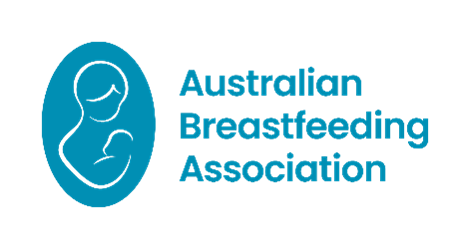
Developed by Australian Breastfeeding Association
A one-page Quick guide to planning for emergencies for families with babies or toddlers.
A collection of Evacuation kit lists for various ages and feeding methods will help you to know what to pack in your emergency evacuation kit for your baby or toddler.
A series of 6 fact sheets on feeding babies and toddlers in emergencies with information about breastfeeding, expressing, storing and using breastmilk, and safe formula feeding in disasters.
For suggestions on what to pack in a family survival kit: https://www.redcross.org.au/emergencies/prepare/packing/

A Get ready activity book to help children prepare for emergencies. (Ages 5-8)
A Talking with children before an emergency information sheet that provides guidance on how to include children in discussions around RediPlan.
RediPlan - Red Cross’ emergency plan.
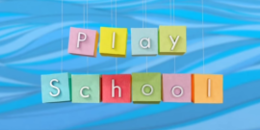
The emergency sack video from Play School supports children to think about what they might need to take with them if they had to leave in a hurry (ages 2-6).
This video from Play School supports children to think about what they could do to help in an emergency (ages 2-6).
Emergencies by their very nature are disruptive and can be very stressful. The recovery process can take time, sometimes months, even years. There are now a number of resources out there to support families in their recovery. They all provide similar information, so we suggest going to a source you trust. Here is a guide to some of the informed resources that are currently out there.

An After the emergency activity book to help children cope with emergencies. (Ages 5-8)

Birdie’s Tree, from the Queensland Centre for Perinatal and Infant Mental Health, includes a suite of storybooks and online games to help young children recover from the emotional effects of natural disasters. (Ages 0-5)
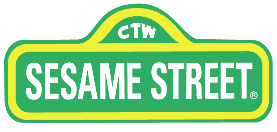
The Big Changes video is about being there for one another after big changes. (Ages 3-5)
The Big Feelings video is about being scared after an emergency. (Ages 3-5)
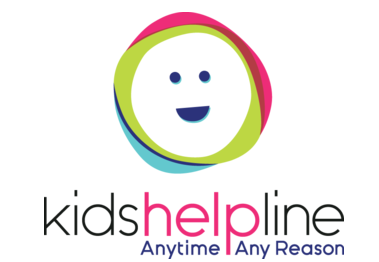
For telephone (1800 55 1800) and online counselling for children and young people. (Ages 5-25)

The Emerging Minds Community Trauma Toolkit contains a number of useful resources (short articles, videos, factsheets, podcasts) to help parents and caregivers after a disaster or traumatic event. A summary of the resources can be found here. They include, but aren’t limited to:
Short articles about what parents and caregivers can expect during and immediately after a disaster or community trauma| In the short term | In the long term
A video about re-establishing routines and rules following a disaster or traumatic event.
A video about the importance of story and play for young children following a natural disaster.
A factsheet about traumatic events: anniversaries and other triggers.

Tips for young people on how to cope with the stress of natural disasters
Online and telephone support and counselling for young people, their family and friends (Ages 12-25).

This story from Play School demonstrates some of the common reactions after a disaster, and some of the ways parents can support their children having those reactions (ages 2-6).

Helping children and young people cope with crisis - booklet for parents and caregivers to help understand stress, trauma, the reactions of children and young people (aged 0-25), how to respond to their needs, sleep, the media, looking after yourself and suggested activities.
Parenting: coping with crisis - This booklet provides reflections on and suggestions for parenting during or after a crisis. It includes tips on coping with crisis while parenting, finding your new normal and helpful resources.
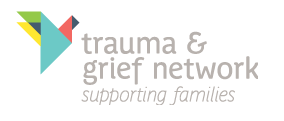
Tip sheets for parents on:
Signs of possible trauma in children and adolescents
Supporting your child’s recovery after trauma
Disasters, the media and your child
Understanding and managing anniversary reactions

The Emerging Minds Community Trauma Toolkit contains a number of useful resources (short articles, videos, factsheets, podcasts) to help parents and caregivers after a disaster or traumatic event. A summary of the resources can be found here. They include, but aren’t limited to:
Short articles about:
what parents and caregivers can expect during and immediately after a disaster or community trauma| In the short term | In the long term
how parents and caregivers can support children during and immediately after a disaster or community trauma| In the short term | In the long term
A video about re-establishing routines and rules following a disaster or traumatic event.
A video about the importance of story and play for young children following a natural disaster.
A factsheet about traumatic events: anniversaries and other triggers.

Birdie’s Tree, from the Queensland Centre for Perinatal and Infant Mental Health, includes information and resources for parents and caregivers of babies and young children:
Recovering together after a natural disaster:
Cyclone| Flood | Earthquake | Drought | and more
Recovering together after a natural disaster in pregnancy and early parenthood booklet.
Recovering together after a natural disaster with babies and young children booklet.

Information for parents about trauma, how children might react, how to help, how to look after yourself and getting further support. (Ages 3-15 years)
Trauma: first response to help children
Trauma: supporting your child in the days and weeks after
Trauma: coping and how to look after yourself
Information and guidance for parents about media exposure to coverage of natural disasters and other distressing news.
Supporting children 6-11 years

Information for people with a disability and families affected by bushfires.

Online and telephone support and counselling for young people, their family and friends.

For relationship support services for individuals, families and communities call 1300 364 277 or visit www.relationships.org.au
This resource was produced by Australian Red Cross as part of the Strengthening Children and Families project conducted in partnership with the University of Melbourne and generously funding by Gandel Philanthropy, Helen Macpherson Smith Trust, Collier Charitable Fund and Perpetual 2019 IMPACT Philanthropy.
Red Cross pays our respects to the Aboriginal and Torres Strait Islander custodians of the country where we work, and to Elders, past, present and emerging.
Learn about our Reconciliation Action Plan and how we can all make reconciliation real.
This website may contain the images, voices or names of people who have passed away.


© Australian Red Cross 2026. ABN 50 169 561 394
